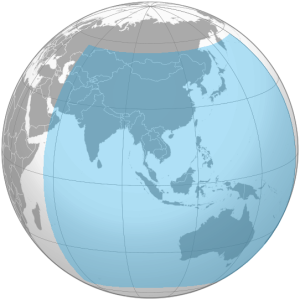
The BeiDou system isn’t global yet, but even in 2012, it covered a good portion of the world, as shown above. And soon, it might cover even more.
Generally speaking, there isn’t usually a whole lot of information about China’s BeiDou Navigation Satellite System available. I’m not sure if it’s simply because China is a bit more secretive about its system or because there isn’t as much going on with BeiDou. Either way, this week I read on GPS Daily that China has plans to launch three or four satellite in 2015, bringing its constellation up to around 20 satellites.
When completed, the BeiDou system will be compromised of 35 satellites and, like its American and Russian predecessors, will be a global network. Unlike the other up-and-coming satellite constellation, Galileo, BeiDou seems to actually be on track and unless there are serious setbacks I expect that it will actually hit the expected completion date of 2020.
According to GPS Daily, the BeiDou system currently consists of 17 satellites and really only provides accurate complete coverage in China, Austraila and parts of Asia. Once completed, the system will be used for similar things as other navigational constellations including transportation and positioning. The new BeiDou satellites will have an accuracy of about 2 – 3 meters.
As far as actual launch dates, there isn’t really any specific information or dates that I can find, and I can’t say I am surprised. The most recently launched satellite, sent up on March 30, was not really announced until after the launch took place and most of the information was pretty vague. Still, it’s nice to see the global GNSS continue to expand with more and more countries working towards global satellite constellations.
